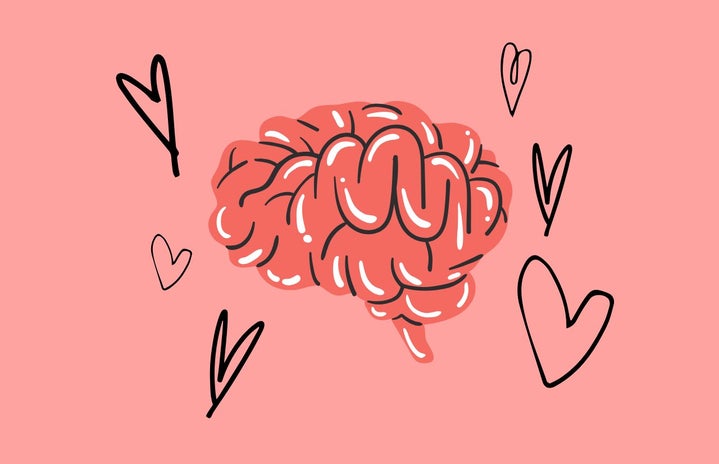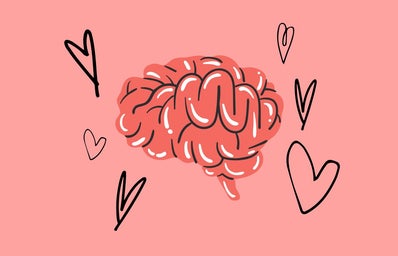General increases in stress and anxiety amongst Americans have long been associated with the COVID-19 pandemic and its social, political and economic repercussions. However, specific and long-term data regarding the pandemic’s effect on the mental health of those affected is still few and far between. Since the start of quarantine in March, I have personally observed tremendous changes, both positive and negative, in the mental conditions of my peers. Naturally, I was curious to find clearer trends relating to the pandemic and its varying effects on high school and college students.
In late March, Pew Research Center conducted a survey of United States adults in order to measure the psychological effects of the COVID-19 pandemic based on three categories–high, medium and low levels of distress. While this study yielded many interesting results, the clearest conclusions made were that “young people and those financially affected by the outbreak are experiencing more financial stress” (Keeter, 2020). In fact, one-third of adults ages 18-29 were categorized in the high distress group (compared to 25% of adults ages 30-49, 22% of adults ages 50-64, and 15% of adults 65+).
Though this data confirms my personal suspicions about the impact of the outbreak on younger Americans, it is now four months old and does not delve into the pandemic’s lasting effects, nor does it observe the nature of those effects on students specifically. Still curious as to these details, I decided to conduct an investigation of my own. Throughout the past week, I asked a group of 19 students the same question: “How has the COVID-19 pandemic impacted your mental health?” Their responses are listed below.
Comprised of three high school students, 16 college students, 13 girls, and six boys, the group’s responses, though personal and varied, were often similar. Feelings of negativity, loneliness, missing out and stress (in many forms) pervaded a majority of the responses. These emotions have persisted or worsened from the start of the pandemic to the present for many students. Others have experienced more positivity as the pandemic continues along its unfortunately lengthy course, and one student’s mental health has even improved from the start. Additionally, it seems as though the pandemic has generally exacerbated the conditions of students with pre-existing mental illnesses, like anxiety and depression.
While my sample size is small and limited to my peers experiencing the pandemic in northeastern states, it is clear that COVID-19 has had a large and lasting impact on students’ mental health. Though some general trends can be seen clearly in my 19 responses, it is also evident that everyone’s experience is different. There is no right or wrong reaction to this pandemic. Remember to check in on your friends, family and self, and most importantly, stay safe.
For reference, these are the group’s anonymous responses:
-
“It’s been hard trying to keep a positive outlook on the situation because of all of the unknown. Usually, I’m able to see a light at the end of the tunnel, but this pandemic just keeps lingering on and on, and it’s created a lot of negativity that is hard to overcome”
-
“This pandemic has definitely made an impact on my mental health, as I’m sure it has to many others around the world. It caused my parents and my brother to be furloughed, which led to my brother and his family moving in with my parents and I. The new living situation is not easy by any means, but we’re making the best of it and trying to stick together in these tough times, which is the most important thing. My stress and anxiety levels are easily at the highest they’ve ever been, but I keep pushing through in hopes that COVID-19 will soon be handled correctly and taken care of.”
-
“I really had a hard time with going from being constantly surrounded by friends to being so isolated. I had pretty much no energy or motivation to do anything but lay in bed, so getting through the rest of the semester was mentally and physically exhausting. If I hadn’t been able to find last minute off-campus housing for the fall to live with friends, I definitely think I’d just get worse and worse mentally.”
-
“I would say the whole experience during quarantine made me feel very isolated, which made it easy to start thinking very negatively, but it led me to find new ways to have a positive outlook in difficult times.”
-
“Quarantine definitely made me feel like I was moving backward, which was difficult considering how excited I was to move into the future, but overall I learned that ‘you can’t always get what you want; instead sometimes you get what you need.’ And for me that was gratitude and patience. I still want the coronavirus gone though!”
-
“I feel like [the COVID-19 pandemic] actually helped my mental health so much! I’ve had time to reflect on how I’m living my life and found time to do new things like workout more and have more time to myself.”
-
“This pandemic has been hard on my whole family. My grandma and grandpa died, which was tough, but we got through it. Also, I tested positive for corona. Emotional rollercoaster. Now I’m thriving though. It really showed me how to deal with adversity and overcome.”
-
“Being it was our freshman year and already a huge transition to college, going into second semester, I was so excited for all the new opportunities I would be partaking in. I felt like having them taken away from me just as they were starting was really hard to comprehend and as the semester went on, knowing all that you were missing out on was really difficult. And it’s one thing to be like, ‘well, there will be more of that soon,’ but we really don’t know when things will be normal again.”
-
“I’m really sad about the corona [pandemic] because I pay a lot of money to attend college for the sole purpose of being in a city where I want to work. I’m missing out on doing internships and other activities because I can’t justify paying so much money for just an online experience. It also makes me nervous about the future because I don’t know if I’ll be able to go back soon.”
-
“COVID-19 has affected my mental health tremendously. It has ruined the social aspect of college and has made it very difficult to enjoy other activities, like rushing for a sorority, that I can’t do online. I feel like I’m not gaining the same experience as I would in person, and the stress of online classes has really taken a toll on my mental health.”
-
“Living with a deadly and seemingly rampant pandemic, I had been left to struggle under these stressful conditions with no warning. Being confined to the same house for months, I found the isolation unbearable at times. Although I was surrounded by my nuclear family, as an extrovert, I constantly yearned for human interaction. Due to that lack of interaction, I found myself less motivated to carry out daily tasks such as completing school work and keeping a clean living space. In addition, I constantly lived under the fear of passing the deadly virus onto my loved ones. With both parents having pre-existing conditions, I had to be extremely cautious (even up to the point of paranoia) to feel that I successfully thwarted becoming a carrier of the virus. Now, even as restrictions have been lifted, I still conduct myself with the same fear and paranoia that had been instilled in me from the beginning. In fact, I believe that I have to be more careful as it seems people around me have become more foolish and arrogant of the repercussions.”
-
“I think the coronavirus pandemic definitely affected my mental health as it caused me to self reflect in ways that I had never done before. Having to be quarantined and stuck with my thoughts for a great length of time definitely affected me both negatively and positively as a person.”
-
“During quarantine, my anxiety spiked to the point of where I would get in my car, drive around alone by myself, and cry. Quarantine left me alone with nothing but my thoughts and a feeling of loneliness, which led me to enter back into a toxic, mentally abusive relationship. Also, I baked a lot.”
-
“My mental health has really deteriorated during this pandemic, especially during quarantine. The stress of online classes caused me to resume a lot of the detrimental, anxious habits I had finally got rid of in college. Without the social aspect of school, I felt isolated and more depressed than I’d ever been, when pre-quarantine, I was the happiest I’d ever been. It was a complete 180. I don’t know how this upcoming semester is going to go.”
-
“The pandemic has affected my mental health insurmountably. I decided to come out during these past few months as bisexual, and not having people around me to remind me of my worth when people bully me for my sexuality has been incredibly difficult. Because of this, my depression and anxiety has continued to decline, but having alone time has also allowed me to grow and accept myself.”
-
“At the beginning of quarantine, my mental health declined. Fortunately, after a few months, I was able to not only focus on my relationship with myself, but also on my own personal relationships. Like many, I’ve dealt with depression and anxiety over the years. Quarantine, in a way, was a time for myself to grow as a person and heal.
-
“The recent pandemic has been very detrimental to my mental health. With the evacuation from school and keeping a distance from my friends and fellow teammates, it has become a huge challenge and affected me in more ways than I expected. With the lack of social interactions and distance, I find it difficult to truly be myself and it has made me feel incredibly dispiriting and irritable.”
-
“COVID sucks. Ever since self-quarantining, my mental health has plummeted. I am so used to seeing and spending time with extended family every weekend that once that was taken away, I didn’t want to do anything. For the first few weeks, my family would get together and we would stay in our own areas of the lawn, but it required a lot of effort for my younger cousins especially to not ‘attack’ each other. Also, because of quarantine, most of my family ended up getting into an argument that caused a big divide in my family for weeks. The fact that I could not see them, then I couldn’t even really talk to them is attributed mostly to quarantine. Some of the issues that arose needed to be addressed so I’m thankful for quarantining in that way, but it was really difficult for my family for almost three months. Being trapped inside had its perks for a while, but it got difficult fast. I ended up deleting social media for two months because I was sick of seeing people be together (not social distancing), and I stopped talking to people altogether in those two months because of everything happening with my family. It drained me emotionally and physically. Health is my number one priority, especially when it comes to my family and those that I love. But I’m tired of being stuck indoors.”
-
“When this pandemic first started, I was confused and scared for the future. All my classes had been moved to online, and it had a negative impact on my mental health. However, as we have gone through these past months, I have learned to adjust and have taken the time at home to focus on my mental health. These are still struggling times for me, but I try to focus on the light of this situation, like spending more time with my family.”
Sources:
Keeter, Scott. “People Financially Affected by Coronavirus Outbreak Are Experiencing More Psychological Distress than Others.” Pew Research Center, Pew Research Center, 27 July 2020.



